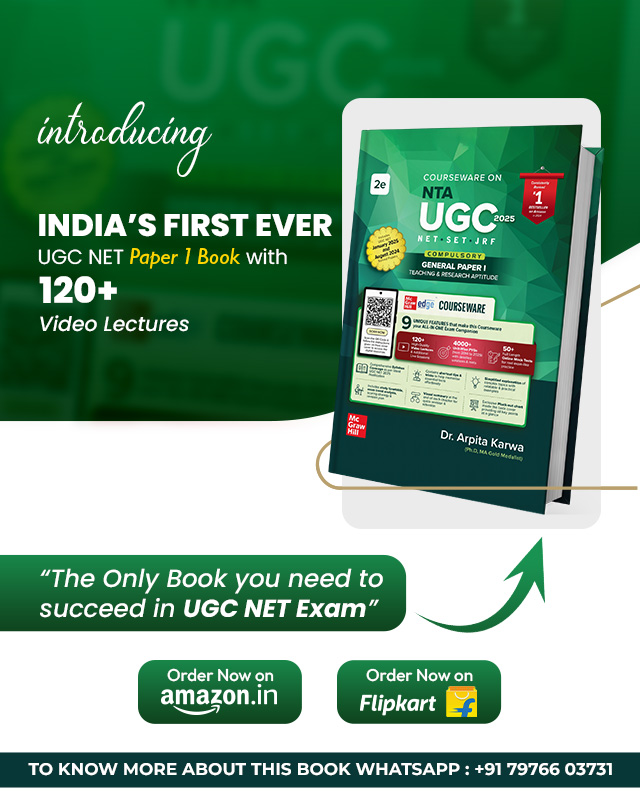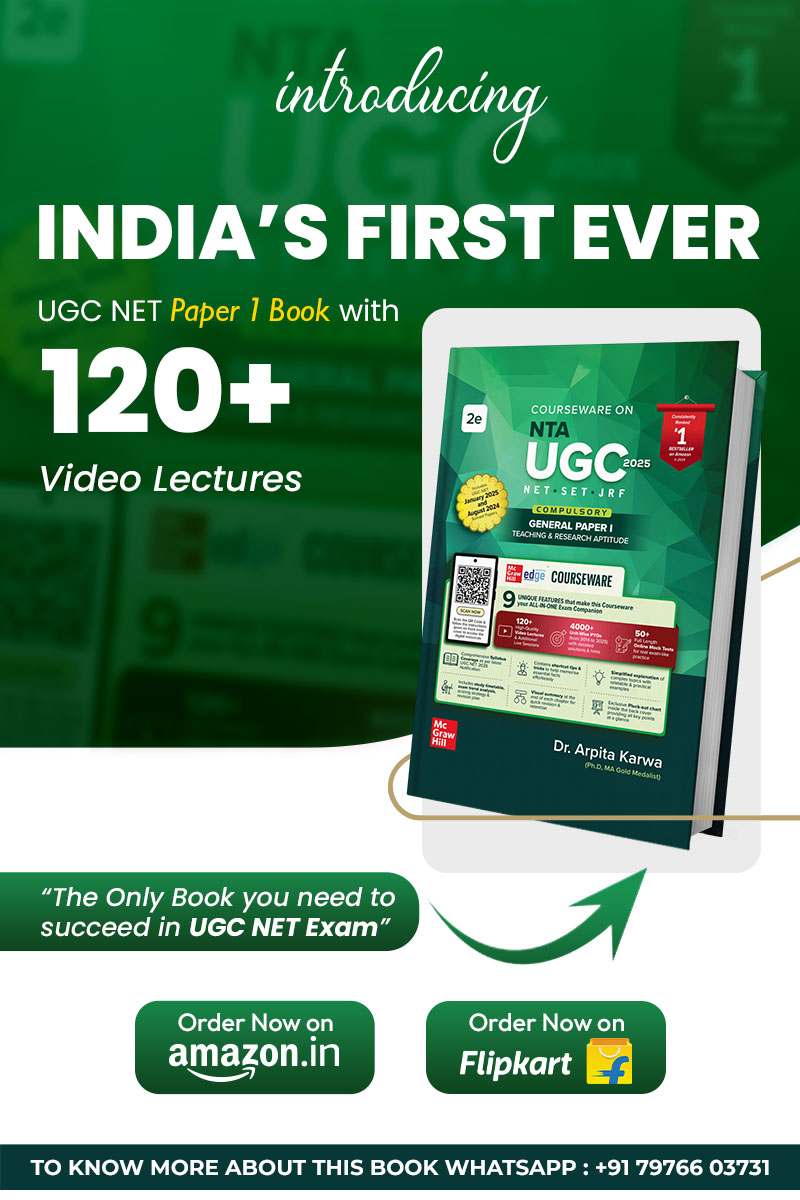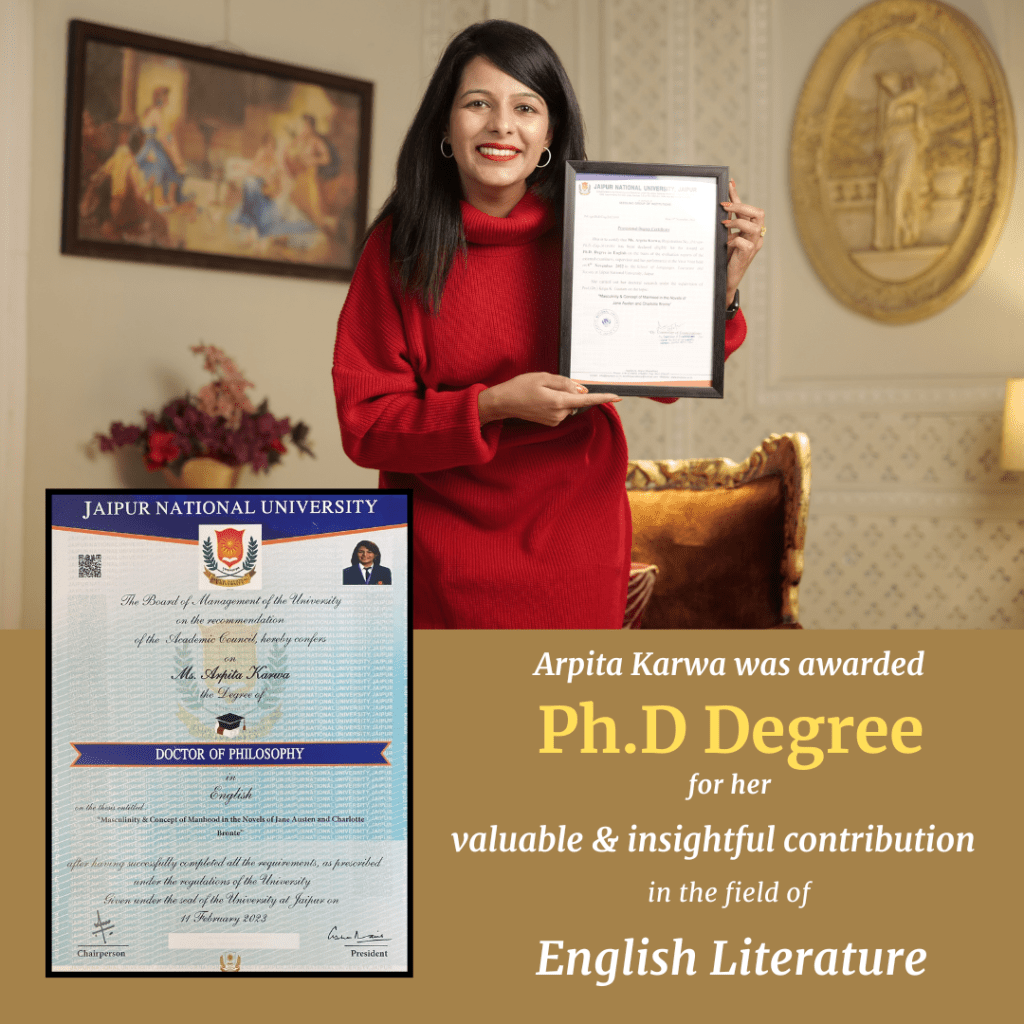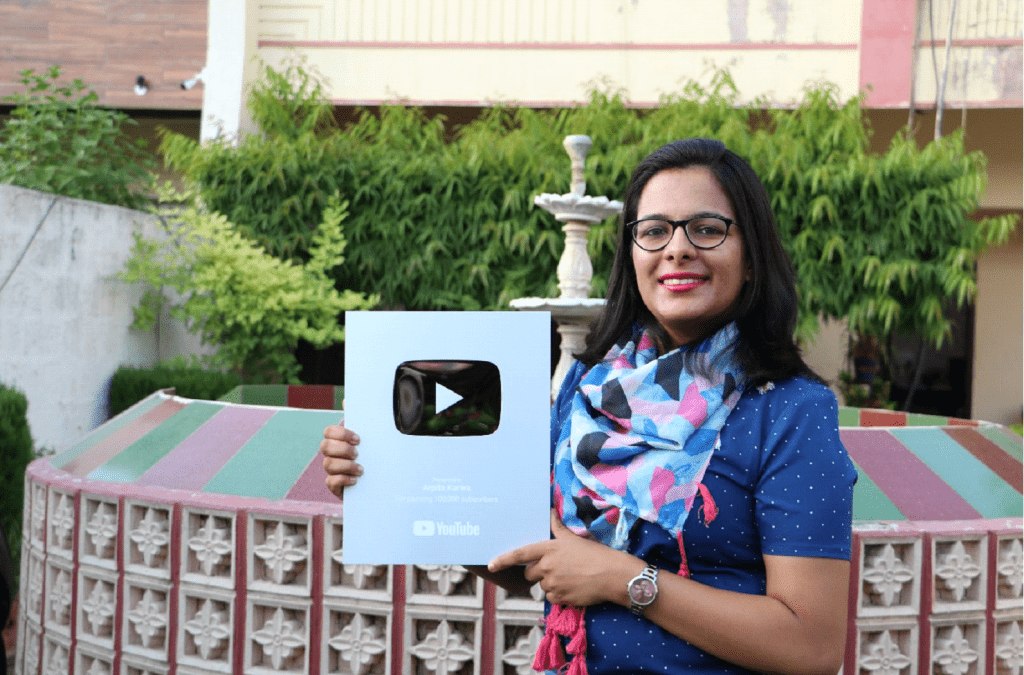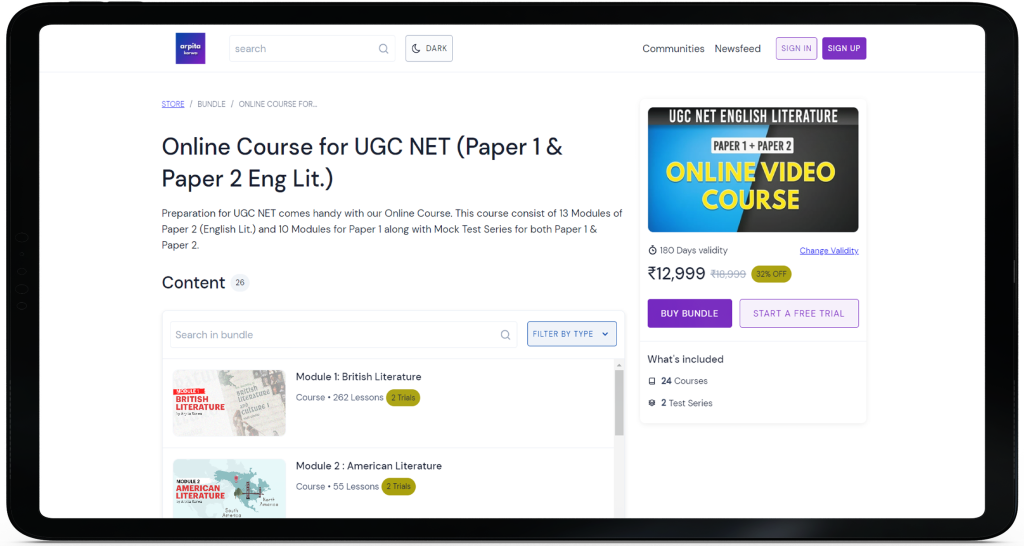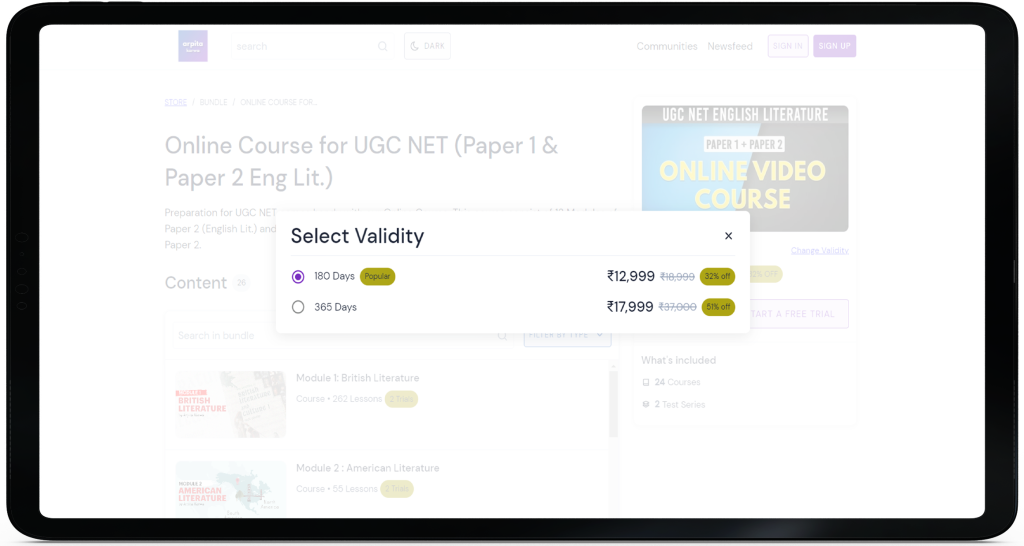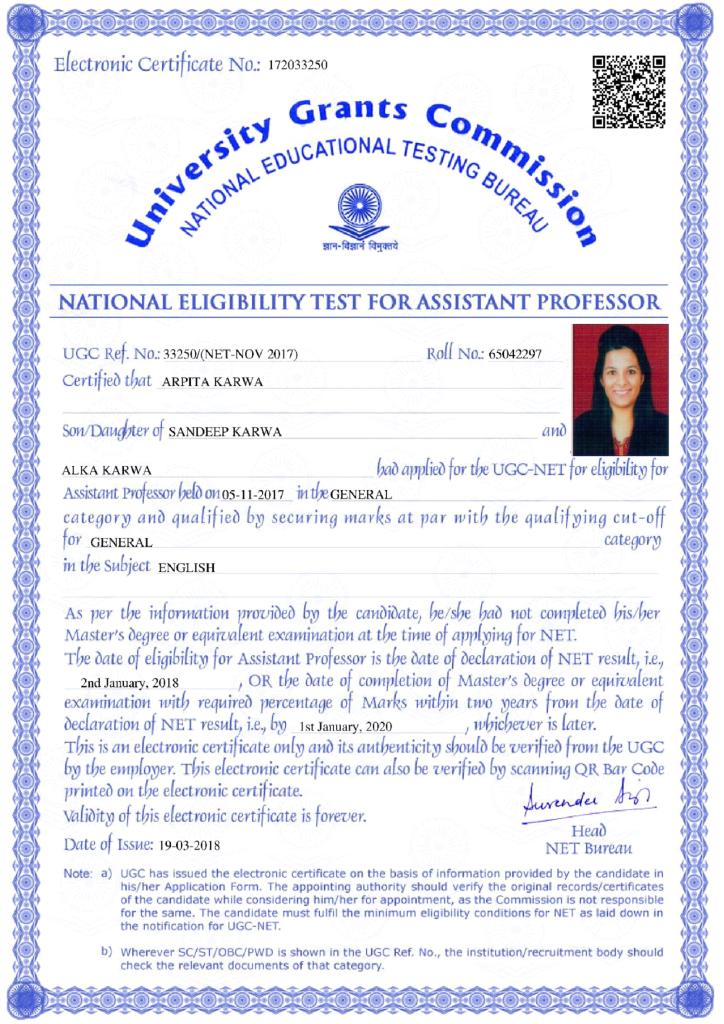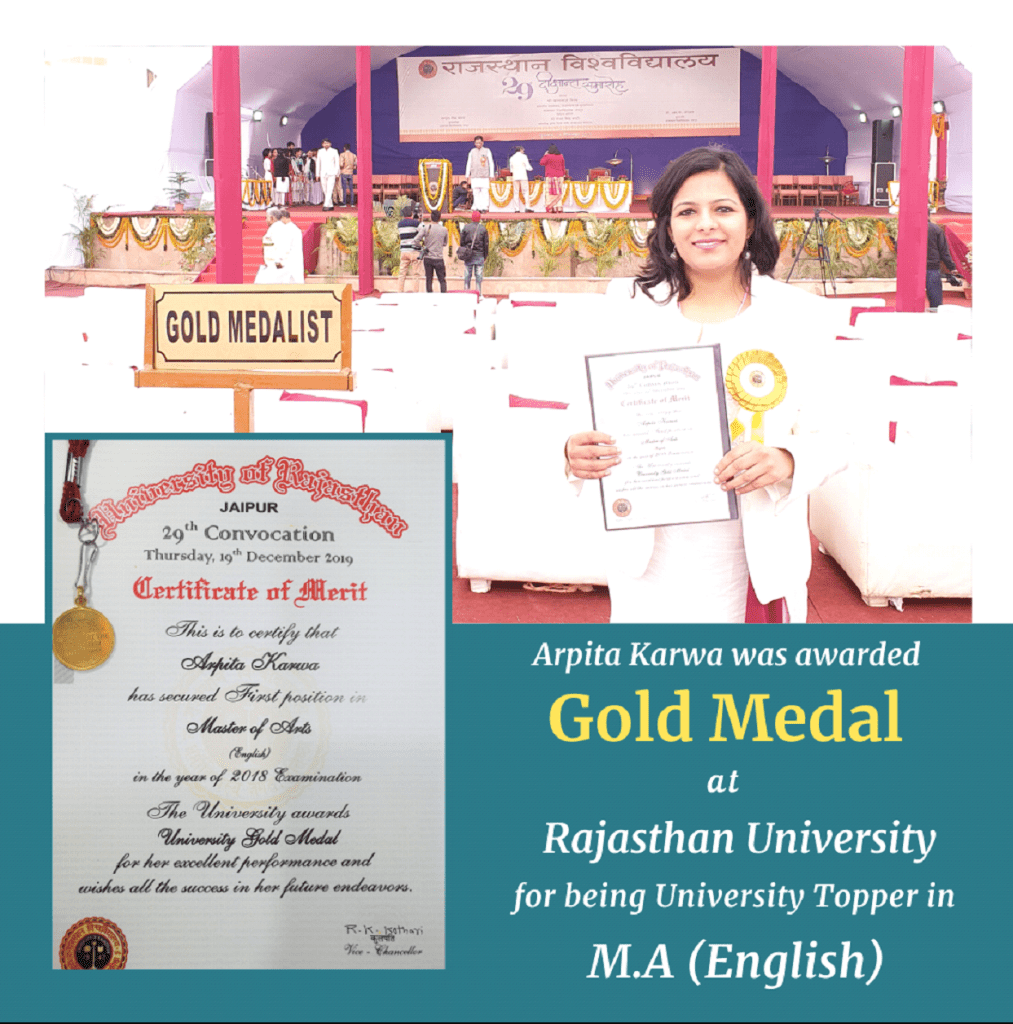UNIVERSITY OF DELHI M.A. ENGLISH, ENTRANCE EXAM 2021
June 19, 2023 2023-12-11 18:30UNIVERSITY OF DELHI M.A. ENGLISH, ENTRANCE EXAM 2021
University of Delhi M.A. English, Entrance Exam 2021
UNIVERSITY OF DELHI
M.A. ENGLISH, ENTRANCE
Q.1) Which of the following is Shakespeare’s Festive Comedy?
[1] Measure of Measure
[2] The Tempest
[3] King Henry
[4] Twelfth Night
Answer: Twelfth Night
Q.2) Which of the following plays have cynical and melodramatic plot?
[1] Macbeth
[2] All for Love
[3] The Duchess of Malfi
[4] The Family Reunion
Answer: The Duchess of Malfi
Q.3) Which of these literary works include the following?
(A) Passus
(B) Harrowing of Hell
(C) Dream visions
Choose the correct answer from the options given below:
[1] The Canterbury Tales
[2] Piers the Plowman
[3] Confessio Amantis
[4] Morte d’ Arthur
Answer: Piers the Plowman
Directions (Qs. No. 4-6): Questions are based on the following passage. Read the passage and answer the questions that follow.
“TO SEEK to extinguish anger utterly, is but a bravery of the Stoios. We have better oracles: Be angry, but sin not. Let not the sun go down upon your anger. Anger must be limited and confined, both in race and in time. We will first speak how the natural inclination and habit to be angry, may be attempted and calmed. Secondly, how the particular motions of anger be repressed, or at least refrained from doing mischief. Thirdly, how to raise anger, or appease anger in another.”
Q.4) The above extract reminds one of the writing style of:
[1] Francis Bacon
[2] Ben Jonson
[3] John Milton
[4] Thomas Hobbes
Answer: Francis Bacon
Q.5) Which one of the following options gives best expression to the central message of the passage?
[1] “To seek to extinguish anger utterly, is but a bravery of the stoics.”
[2] “Let not the sun go down upon your anger.”
[3] “Anger must be limited and confined, both in race and in time.”
[4] One should not be angry at all.
Answer:
Q.6) The author of the given passage appears to be in a __________.
[1] Reflexive mood
[2] Narrative mood
[3] Descriptive mood
[4] Spiritual mood
Answer:
Q.7) Who is the author of Mall Flanders?
[1] Jonathan Swift
[2] Daniel Defoe
[3] Henry Fielding
[4] Samuel Richardson
Answer:
Q.8) Identify the correct statement/s from the ones given below:
(A) Ben Jonson fought bravely to “restore the classic form of the drama.”
(B) Volpone is Ben Jonson’s first comedy.
(C) Ben Jonson killed an actor in a duel and only escaped hanging by the pleading “benefit of clergy.”
(D) In his Every Man in His Humour “Shakespeare acted one of the parts.”
Choose the correct answer from the options given below:
[1] (A), (B) and (C) only
[2] (B), (C) and (D) only
[3] (A), (C) and (D) only
[4] (A), (B) and (D) only
Answer:
Q.9) Which of the following is not true about Anti-foundationalism?
[1] It rejects fundamental belief in universal categories.
[2] It relies on continuing ethical enquiry without any universal system.
[3] It is morally relativist and relies on a multitude of local and concrete practices.
[4] It recognises self evident truths and reports of sense data as basic.
Answer:
Q.10) In Jonathan Swift’s Gulliver’s Travels, on which island does Gulliver discuss history with the ghosts of historical of historical figures like Julius Caesar, Brutus, Homer, Aristotle, etc.?
[1] Glubbdubdrib
[2] Balinibarbi
[3] Luggnagg
[4] Laputa
Answer:
Q.11) Read the statement:
Statement: Modernism was a break with the past and the concurrent search for new forms of expression.
Which is the following is true in context of the above expression.
[1] Modernists were bored of following older traditions and thought of bringing a change by establishing new traditions.
[2] Modernists believed that after the World War, it was important to have a universality in art and culture.
[3] Modernists were of the view that all art forms need to be synchronized with the morality, optimism and conventions established in the Victorian era.
[4] Modernists felt a growing alienation, incompatible with Vicrorian morality, optimism, and convention.
Answer:
Q.12) William Jones is a/an:
[1] Orientalist
[2] Novelist
[3] Essayist
[4] Satirist
Answer:
Q.13) Match List- I with List- II:
List- Ⅰ
(Inspired Title of the Novel)
(A) Infinite Jest
(B) Cakes and Ale
(C) The Winter of our Discontent
(D) By the Pricking of my Thumbs
List- Ⅱ
(Shakespeare’s work)
(Ⅰ) Macbeth
(Ⅱ) Twelfth Night
(Ⅲ) Hamlet
(Ⅳ)RichardⅢ
Choose the correct answer from the options given below:
[1] A-Ⅰ, B-Ⅱ, C-Ⅲ, D-Ⅳ
[2] A-Ⅲ, B-Ⅱ, C-Ⅳ, D-Ⅰ
[3] A-Ⅳ, B-Ⅰ, C-Ⅱ, D-Ⅲ
[4] A-Ⅱ, B-Ⅳ, C-Ⅲ, D-Ⅰ
Answer:
Q.14) Which one of the following is a novel by Smollett?
[1] Clarissa
[2] Jonathan Wild
[3] Humphrey Clinker
[4] A Sentimental Journey through France and Italy
Answer:
Q.15) Arrange the following works in the chronological order:
(A) Robert Browning’s “Andrea Del Sarto”
(B) John Donne’s “The Canonization
(C) Alfred Tennyson’s “Ulysses”
(D) T.S. Eliot’s “The Love Song of J. Alfred Prufrock”
Choose the correct answer from the options given below:
[1] (B), (A), (C), (D)
[2] (C), (B), (D), (A)
[3] (B), (C), (A), (D)
[4] (A), (B), (D), (C)
Answer:
Q.16) __________ is a type of lyric poem perfected by Robert Browning.
[1] Ode
[2] Limerick
[3] Dramatic Monologue
[4] Elegy
Answer:
Q.17) Which of the following works of John Keats makes use of the dream vision, a mode of narrative widely used by the medieval poets?
[1] “La Belle Dame Sans Merci”
[2] “The Fall of Hyperion”
[3] “Ode on the Grecian Urn”
[4] “On First Looking into Chapman’s Homer”
Answer:
Q.18) Which of the following is an/are example(s) of a literary ballad?
[A] “The Rime of the Ancient Mariner”
[B]” La Belle Dame Sans Merci”
[C] “Proud Maisie”
Choose the correct answer from the options given below:
[1] (A), (B) and (C)
[2] (A) only
[3] (A) and (B) only
[4] (A) and (C) only
Answer:
Q.19) Choose the correct order of PQRS set to complete the paragraph:
(A) The phrase Celtic Revival describes past movements in literature, the arts, and social practices in which legends, poetry, art, and spirituality of a distinctive kind were revived.
(B)______________
(C)______________
(D)______________
(E)______________
(F) It was also evident in art, design, music, and sport.
[P] The most significant Celtic Revival took place in Ireland toward the end of the 19th century and into the first two decades of the 20th century.
[Q] Writers and artists identifies these with the Celtic people in parts of pre-Christian and early Christian Europe.
[R] The Irish Revival was felt most strongly in literature, drama and the Irish language.
[S] It is commonly referred to as the Irish Revival, though it has also been considered a Celtic revival in Ireland that had associations with revival movements in Scotland, Wales, the English regions, and Brittany.
Choose the correct answer from the options given below:
[1] PQRS
[2] QPSR
[3] PQSR
[4] QPRS
Answer:
Q.20) The poem “Tiresias” was composed by:
[1] Samuel Taylor Coleridge
[2] Elizabeth Barrett Browning
[3] Leigh Hunt
[4] Alfred Lord Tennyson
Answer:
Q.21) Elizabeth Barret Browning was:
[1] A poet
[2] A novelist
[3] A fictional character
[4] A dramatist
Answer:
Q.22) Which of the following popular French novels was not written by Gustave Flaubert?
[1] Madam Bovary
[2] The Flowers of Evil
[3] Memoirs of a Mad Man
[4] The Temptation of Saint Anthon
Answer:
Directions (Qs. No. 23-26): Read the passage given below and answer the questions that follow:
Justification for the exclusion is sought, instead, mainly upon questionable racial and ideological grounds not ordinarily within the realm of expert military judgment, supplemented by certain semi military conclusions drawn from an unwarranted use of circumstantial evidence. Individuals of Japanese ancestry are condemned because they are said to be “a large, unassimilated, tightly knit racial group bound to an enemy nation by strong ties of race, culture, custom and religion.” They are claimed to be given to “emperor worshiping ceremonies” and to “dual citizenship.” Japanese language schools and allegedly pro-Japanese organizations are cited as evidence of possible group disloyalty, together with facts as to certain persons being educated and residing at length in Japan…
The military necessity which is essential to the validity of the evacuation order thus resolves itself into a few intimations that certain individuals actively aided the enemy, from which it is inferred that the entire group of Japanese Americans could not be trusted to remain loyal to the United States.
Q.23) The author’s opinion of the military judgement used to justify the evacuation of Japanese Americans is:
[1] That it is not based on evidence
[2] That it is not based on expert knowledge
[3] That it is based on racial prejudice
[4] All of the above
Answer:
Q.24) “…a large, unassimilated, tightly knit racial group, bound to an enemy nation by strong ties of race, culture, custom and religion” indicates:
[1] A refusal to be citizens
[2] A refusal to think of Japanese as US citizens
[3] A refusal to accept the US as home
[4] Prejudice on the part of Japanese
Answer:
Q.25) The passage refers to the:
[1] Internment of Japanese during World War -Ⅱ
[2] Internment of Japanese during World War-Ⅰ
[3] Internment of Japanese Americans during World War-Ⅱ
[4] Internment of Japanese Americans during World War-Ⅰ
Answer:
Q.26) An entire group being treated with suspicion for the actions of a few individuals is an example of:
[1] Xenophobia
[2] Othering
[3] Race baiting
[4] All of the above
Answer:
Q.27) Who wrote the phrase “Wordsworth Ian or Egotistical sublime”?
[1] John Keats
[2] W.B. Yeats
[3] Percy B. Shelley
[4] W.H. Auden
Answer:
Q.28) Pick the odd one out:
[1] William Hazlitt
[2] Richard Steele
[3] Charles Lamb
[4] Thomas De Quincey
Answer:
Q.29) Who wrote Agnes Grey?
[1] Charles Dickens
[2] Thomas Swinburne
[3] Henry Fielding
[4] Anne Bronte
Answer:
Q.30) Arrange the following works in their chronological order.
[A] Practical criticism
[B] Coleridge on Imagination
[C] Speculative Instruments
[D] Science and Poetry
Choose the correct answer from the options given below:
[1] (A), (B), (C), (D)
[2] (D), (A), (B), (C)
[3] (B), (C), (A), (D)
[4] (A), (B), (D), (C)
Answer:
Q.31) Arrange these events chronologically:
[A] Ulysses is serialized in ‘The Little Review.’
[B] Joyce and Nora went into self imposed exile, moving to Zurich.
[C]Portrait of the Artist as a Young Man appears in ‘The Egoist’ magazine.
[D] James Joyce manages the Volta Cinematograph, Ireland’s first cinema.
Choose the correct answer from the options given below:
[1] (C), (D), (A), (B)
[2] (A), (B), (D), (C)
[3] (B), (D), (C), (A)
[4] (B), (D), (A), (C)
Answer:
Q.32) Choose the most appropriate reason for the following statement:
STATEMENT: Virginia Woolf wrote that there would be female Shakespeare in the future provided women found a room of one’s own .
REASON: _________
[1] Woolf believed that Shakespeare and other male dramatists use patriarchal language in their plays.
[2] Woolf was of the opinion that we need more and more female dramatists as the art form lacks strong female characters.
[3] Woolf argues that a woman writer has to struggle against societal oppression around gender.
[4] Woolf argues that a woman who wants to write must find a wealthy husband earning 500 pounds a year.
Answer:
Q.33) Whoever wishes to attain an English Style, familiar but not coarse, and elegant but not ostentatious, must give his days and nights to the volumes of Addison.” Who among the following expressed the above quoted view?
[1] Richard Steele
[2] Oliver Goldsmith
[3] Samuel Johnson
[4] William Cowper
Answer:
Q.34) The speech “On Conciliation with America” was delivered by:
[1] Samuel Johnson
[2] William Cowper
[3] Edmund Burke
[4] Martin Luther King Jr
Answer:
Q.35) Match List-Ⅰwith List-Ⅱ:
List-Ⅰ
(Work)
(A) The Boke named the Governor
(B) Art of Rhetorique
(C) The Schoolmaster
(D) The Hurt of Sedition
List-Ⅱ
(Author/Editor)
(Ⅰ) Sir Thomas Elyot
(Ⅱ) Sir Thomas Wilson
(Ⅲ) Roger Ascham
(Ⅳ) Sir John Check
Choose the correct answer from the options given below:
[1] A-Ⅰ, B-Ⅱ, C-Ⅲ, D-Ⅳ
[2] A-Ⅱ, B-Ⅲ, D-Ⅳ, D-Ⅰ
[3] A-Ⅲ, B-Ⅳ, C-Ⅰ, D-Ⅱ
[4] A-Ⅳ, B-Ⅰ, C-Ⅱ, D-Ⅲ
Answer:
Q.36) Which of the following poets is associated with ‘Movement Poetry’?
[1] Anne Sexton
[2] Philip Larkin
[3] John Berryman
[4] Ted Hughes
Answer:
Q.37) Premchand’s novel, Rangbhumi is a major critique of caste vis-à-vis____________
[1] Nationalism
[2] Industrialization
[3] Communalism
[4] Labour laws
Answer:
Q.38) Identify the critic who used the term ‘bourgeois epic’ for novels.
[1] Matthew Arnold
[2] Brian Wilkie
[3] Georg Lukacs
[4] None of the above
Answer:
Q.39) Which of these statements is/are true about the Bloomsbury group?
(A) It was a group of associated English writers, intellectuals, philosophers and artists in the first half of the 21st century.
(B) A historical feature of these friends and relations is that their close relationships all pre-dated their fame as writers, artists, and thinkers.
(C) The lives and works of the group members reflect in large part, the influence of G.E. Moore.
(D) This group contained a loose collective of friends and relatives who were closely associated with the University of Cambridge for the women and King’s college London for the men.
Choose the correct answer from the options given below:
[1] (A) only
[2] (A) and (D) only
[3] (C) only
[4] (B) and (C) only
Answer:
Q.40) Which among Shakespeare’s history plays are commonly believed to make up the Henriad?
[1] Richard Ⅱ, Henry Ⅴ and Richard Ⅲ
[2] Henry Ⅴ and Henry Ⅷ
[3] RichardⅡ, Henry Ⅳ part 1, Henry Ⅳ Part 2 and henry Ⅴ
[4] Henry Ⅳ Part 1, Henry Ⅳ Part2 and Henry Ⅴ
Answer:
Q.41) Match List Ⅰ- with List-Ⅱ:
List Ⅰ
(Philosopher)
(A)Philo
(B) Marcus Aurelius
(C) Callimachus
(D) Cicero
List-Ⅱ
(Seminal Work)
(Ⅰ) Pinakes
(Ⅱ) Academica
(Ⅲ) Every Good Man Is Free
(Ⅳ) Meditation
Choose the correct answer from options given below:
[1] A-Ⅳ, B-Ⅲ, C-Ⅱ, D-Ⅰ
[2] A-Ⅰ, B-Ⅳ, C-Ⅱ, D- Ⅲ
[3] A-Ⅲ, B-Ⅳ, C-Ⅰ, D-Ⅱ
[4] A-Ⅰ, B-Ⅳ, C-Ⅲ, D-Ⅱ
Answer:
Q.42) Which of the following statements are not true about the Absurd Drama?
(A) It has realistic settings.
(B) It has a coherently evolving plot.
(C) It has logical reasoning.
(D) It parodies the traditional assumptions.
Choose the correct answer from the options given below:
[1] (A), (B) and (C) only
[2] (B), (C) and (D) only
[3] (A), (C) and (D) only
[4] All of the Above
Answer:
Q.43) Match List-Ⅰ with List-Ⅱ:
List-Ⅰ
(Quotation)
(A)” No Poet, no artist of any art, has his complete meaning alone. His significance, his appreciation is the appreciation of his relation to the dead poets and artists.”
(B) “The philosopher, therefore, and the historian are they, which would win the goal, the one by precept, the other by example; but both, not having both, do both halt.”
(C) “Nothing can please many, and please long, but just representations of general nature.”
(D) “The future of poetry is immense, because in poetry, where it is worthy of its high destinies, our race, as time goes on, will find an ever surer and surer stay.”
List-Ⅱ
(Author)
(Ⅰ) Philip Sidney
(Ⅱ) Dr. Johnson
(Ⅲ) Shelley
(Ⅳ) T.S. Eliot
Choose the correct answer from the options given below:
[1] A-Ⅲ, B-Ⅱ, C-Ⅳ, D-Ⅰ
[2] A-Ⅱ, B-Ⅲ, C-Ⅳ, D-Ⅰ
[3] A-Ⅲ, B-Ⅳ, C-Ⅰ, D-Ⅱ
[4] A-Ⅳ, B-Ⅰ, C-Ⅱ, D-Ⅲ
Answer:
Q.44) Matthew Arnold in his Culture and Anarchy suggests:
[1] Culture as the classical ideal of human perfection
[2] Culture as the smattering of Greek and Latin
[3] Culture as touch stone to test the value of other things
[4] Culture as modern human achievement
Answer:
Q.45) “The president of the immortals had had his sport with Tess” marks the end of which of the following works?
[1] James Joyce’s The Portrait of the Artist as a Young Man
[2] Thomas Hardy’s Tess of the D’Urbervilles
[3] Leo Tolstoy’s War and Peace
[4] Jane Austen’s Persuasion
Answer:
Q.46) “Spots of time” is a term that is associated with…
[1] James Joyce
[2] P.B. Shelley
[3] William Blake
[4] William Wordsworth
Answer:
Q.47) Pick the odd one out.
[1] “Adonais”
[2] “In Memoriam”
[3] “In Memory of W B Yeats”
[4] “On First Looking into Chapman’s Homer”
Answer:
Q.48) Which of the following statements is/are true about P.B. Shelley’s Defence of Poetry?
Statement(A): It defends imaginative literature and associate’s poetry with social freedom and love.
Statement(B): It holds that the literary imagination is essentially moral, and upholds the value of erotic writing.
In light of the above statements, choose the correct answer from the options given below:
[1] A is true and B is false
[2] A is false, but B is true
[3] Both A & B are true
[4] Both A & B are false
Answer:
Q.49) “I mean________, that is when a man is capable of being in uncertainties, mysteries, doubts, without any irritable reaching after fact and reason.”
Choose the correct option and fill in the blank:
[1] Willing Suspension of Disbelief
[2] Negative Capability
[3] Heterotopia
[4] Fantastical
Answer:
Q.50) Which of the following is not true about Shakespeare’s Major Tragic Characters?
[1] They hail from higher class and are shown in their private affairs
[2] They develop throughout the play
[3] They come to a realisation by the end of the play
[4] They make compromises and reconciliations by the end of the play
Answer:
Q.51) Arrange the following works in the chronological order:
(A) Elaine Showalter’s A Literature of Their Own
(B) Judith Butler’s Bodies that Matter
(C) Luce Irigaray’s Speculum of the Other Woman
(D) Eve Kosofsky Sedgwick’s Epistemology of the Closet
Choose the correct answer from the options given below
[1] (A), (B), (C), (D)
[2](C), (B), (D), (A)
[3] (A), (C), (D), (B)
[4] (B), (C),(A),(D)
Answer:
Q.52) Decide on the proper order of the sentences given below:
(A) Therefore, it appears that she is not romantic in her love for Bertram, instead she possesses a practical approach towards her love for Bertram.
(B) On the contrary her love seems to get its roots from the practical approach to life.
(C)She probably realizes that by marrying Bertram she can achieve the social status which her lower birth denied her.
(D) To me it appears that Helena’s love for Bertram is neither a religious one nor a romantic one.
Choose the correct answer from the options given below:
[1](A), (B), (C), (D)
[2] (D), (B), (C), (A)
[3] (A), (C), (B), (D)
[4] (D), (B), (A),(C)
Answer:
Q.53) In psychoanalysis and literary analysis, the term “uncanny” suggests:
[1] A familiar feeling
[2] An unfamiliar feeling
[3] An unfamiliar feeling within familiar
[4] A familiar feeling within unfamiliar
Answer:
Q.54) Who is the precursor of Dialogic Criticism?
[1] Karl Marx
[2] Mikhail Bakhtin
[3] Tzventan Todorov
[4] Wayne C. Booth
Answer:
Q.55) Which of these statement(s) is/are not associated with postmodernism?
(A) Postmodern works reject the idea of absolute meaning and instead embrace randomness and disorder.
(B) Postmodern literature emphasized meaninglessness and play.
(C) Postmodernist writers employed pastiche and the combination of high and low culture.
(D) Postmodernist writers used black Humor, wordplay and irony to dizzy readers and muddle the story.
Choose the correct answer from the options given below:
[1] (B) only
[2] (A) and (D) only
[3] (C) only
[4] None of the above
Answer:
Q.56) ________ is primarily engaged in identifying distinctly feminine subject matter in the literature written by women, uncovering the history of female literary tradition, depicting that there is a feminine mode of experience and subjectivity in thinking and perceiving the self and the world, and specifying traits of “woman’s language”, a distinctively feminine style of speech and writing.
[1] Cultural Theory
[2] Feminism
[3] Queer theory
[4] Gynocriticism
Answer:
Q.57) Match List-Ⅰ with List-Ⅱ :
List-Ⅰ
(Theoretical Discourse)
(A)Russian Formalism
(B) Subaltern Studies
(C) Structuralism
(D) Marxism
List-Ⅱ
(Theorist)
(Ⅰ) Raymond Williams
(Ⅱ) Dipesh Chakrabarty
(Ⅲ)Viktor Shklovsky
(Ⅳ) Claude Levi Strauss
Choose the correct answer from the options given below:
[1] A-Ⅱ, B-Ⅳ, C-Ⅲ, D-Ⅰ
[2] A-Ⅰ, B-Ⅲ, C-Ⅳ, D-Ⅱ
[3] A-Ⅲ, B-Ⅱ, C-Ⅳ, D-Ⅰ
[4] A-Ⅲ, B-Ⅳ, C-Ⅰ, D-Ⅱ
Answer:
Q.58) Find out which part of the sentence has an error, if there is no error, mark option D.
[1] The flexibility of language arises because
[2] language is not constrained by the need
[3] to match the form of a word and its meaning
[4] No Error
Answer:
Q.59) Choose the option which has the correct spelling:
[1] Meiternium
[2] Mietnerium
[3] Meitnerium
[4] Meiterium
Answer:
Q.60) “I’ll love you, dear, I’ll love you Till China and Africa meet, And the river jumps over the mountain And the salmon sing in the street.”
The above lines are an example of:
[1] Hyperbole
[2] Alliteration
[3] Irony
[4] Personification
Answer:
Q.61) Arrange these events in chronological order:
(A) Publication of Bankim Chandra Chatterjee’s Rajmohan’s Wife.
(B) “Macaulay’s Minutes Upon Indian Education”
(C) Publication of Rabindranath Tagore’s Gitanjali
(D) Publication of India’s first newspaper “Hicky’s Bengal Gazette” by James Augustus Hicky
Choose the correct answer from the options given below:
[1](D), (B), (A), (C)
[2] (A), (C), (D), (B)
[3] (C), (D), (B), (A)
[4] (B), (C), (A), (D)
Answer:
Q.62) Identify the poem written by Nissim Ezekiel:
[1] “My Grandmother’s House”
[2] “Freedom”
[3] “Night of the Scorpion”
[4] “A River”
Answer:
Q.63) Who among the following Indian authors propagated the idea of ‘world literature’?
[1] Munshi Premchand
[2] Rabindranath Tagore
[3] Mirza Ghalib
[4] Fakir Mohan Senapati
Answer:
Q.64) Which of the following is a verse adaptation of an episode from the legend of Bon Bibi, a tale popular in the villages of the Sundarban?
[1] Amitav Ghosh’s Junglenama
[2] Manik Bandhopadhay’s The Boatman of Padma
[3] Bibhutibhushan Bandopadhyay’s Restless water of Ichamati
[4] Bankim Chandra Chatterjee’s Mrinalni
Answer:
Q.65) Given below are two statements, one is labelled as Assertion (A) and the other is labelled as Reason (R):
Assertion (A): Romanticism of the Indian poets was different from English romanticism
Since the former was fraught with nationalism, spirituality and mysticism.
Reason (R): While Aurobindo searched for the divine in man, quest of Tagore’s Poetry was the beautiful in man and nature.
In the light of the above statements, choose the most appropriate answer from the options given below:
[1] Both (A) and (R) are correct and (R) is the correct explanation of (A)
[2] Both (A) and (R) are correct, but (R) is not the correct explanation of (A)
[3] (A) is correct, but (R) is not correct
[4] (A) is not correct, but (R) is correct
Answer:
Q.66) Choose the appropriate response with reference to the following statements:
Statement(A): Rabindranath Tagore won the Nobel Prize for Literature in 1913 for his collection Gitanjali published in 1912.
Statement(B): The central theme of Gitanjali is devotion, and its motto is colonialism.
In light of the above statements, choose the correct answer from the options given below:
[1] Both (A) and (B) are true
[2] Only Statement (A) is true
[3] Only Statement (B) is true
[4] Both Statement (A) and Statement (B) are false
Answer:
Q.67) Amrita Pritam is best remembered for her poignant poem, “Ajj aakhaan Waris Shah nu” (Today I invoke Waris Shah). The genre of the poem is:
[1] Elegy
[2] Lyric
[3] Narrative
[4] Dramatic
Answer:
Q.68) Which of these is/are not a theme/s of Raag Darbari?
(A) Rural dystopia
(B) Misuse of technology
(C) Power politics
(D) Satire on government
Choose the correct answer from the options given below:
[1] (A) and (C) only
[2] (B) only
[3] (C) only
[4] (B) and (D) only
Answer:
Directions (Qs. No. 69-72): Read the passage given below and answer the questions which follow by choosing the most appropriate response, with reference to the passage, from the given options:
She had gone back to Tara once in fear and defeat and she had emerged from its sheltering walls strong and armed for victory. What she had done once, somehow-please God, she could do again! How, she did not know. She did not want to think of that now. All she wanted was a breathing space in which to hurt, a quiet place to lick her wounds, a haven in which to plan her campaign. She thought of Tara and it was as if a gentle cool hand were stealing over her heart. She could see the white house gleaming welcome to her through the reddening autumn leaves, feel the quiet hush of the country twilight coming down over her like a benediction, feel the dews falling on the acres of green bushes starred with fleecy white, see the raw color of the red earth and the dismal dark beauty of the pines on the rolling hills.
She felt vaguely comforted, strengthened by the picture, and some of her hurt and frantic regret was pushed from the top of her mind. She stood for a moment remembering small things, the avenue of dark cedars leading to Tara, the banks of cape jessamine bushes, vivid green against the white walls, the fluttering white curtains. And Mammy would be there. Suddenly she wanted Mammy desperately, as she had wanted her when she was a little girl, wanted the broad bosom on which to lay her head,
The gnarled black hand on her hair. Mammy, the last link with the old days. With the spirit of her people who would not know defeat, even when it stared them in the face, she raised her chin. She could get Rhett back. She knew she could. There had never been a man she couldn’t get, once she set her mind upon him.
“I’ll think of it all tomorrow, at Tara. I can stand it then. Tomorrow, I’ll think of some way to get him back. After all, tomorrow is another day.”
Q.69) Why is the person in reference, the “she”, feels comforted on reaching her native place?
[1] Because Mammy might still inhabit her native place?
[2] Because she hopes to find comfort by establishing a nostalgic link to the spirit of her people.
[3] Because the reddening autumn leaves and dews falling on the acres of green bushes remind her of Rhett.
[4] Because that is where her lost lover, Rhett, has gone to.
Answer:
Q.70) Who is the author referring to as “Mammy” in the extract?
[1] The childhood black maid of the person in reference.
[2] The lost lover of the person in reference.
[3] The beloved pet of the person in reference.
[4] The native place of the person in reference.
Answer:
Q.71) What is the mood of the person “She”, according to the passage?
[1] She is fundamentally despondent to the future.
[2] She is inherently desolate towards the future.
[3] She is fundamentally optimistic towards the future.
[4] She is in denial towards a traumatizing bleak future.
Answer:
Q.72) Based on your understanding of the above passage, which genre would you identify the extract from?
[1] Pastoral fiction
[2] Victorian Romance
[3] Tragicomedy
[4] Modernist literature
Answer:
Q.73) Who won the Nobel Prize for Literature in 2020?
[1] Doris Lessing
[2] Amitav Ghosh
[3] Louise Gluck
[4] Isabelle Allende
Answer:
Q.74) Which of these statement/s is/are correct about Aristotle’s Poetics?
(A) The Poetics is a short treatise of twenty-six chapters and forty five pages.
(B) It does not say much about comedy, touches rather briefly on the epic.
(C) The concept of Catharsis has been fully developed in the Poetics.
Choose the correct answer from the options given below:
[1] (A), (B) and (C)
[2] (A) only
[3] (B) and (C) only
[4] (A) and (B) only
Answer:
Q.75) Given below are two statements about Deconstruction
Statement(A): It doubts a definitive meaning and thrusts on an impasse.
Statement(B): It is a form of relativist scepticism that focuses on puns and wordplay.
In light of the above statements, choose the correct answer from the options given below.
[1] Both Statement(A) and Statement(B) are false.
[2] Statement(A) is true but Statement(B) is false.
[3] Both Statement(A) and Statement(B) are true.
[4] Statement(A) is false but Statement(B) is true.
Answer:
Q.76) Which of the following is not true about Naturalism?
[1] It was a literary movement in 19th C.
[2] It depicts the subject with scientific objectivity.
[3] It idealises day to day human experiences.
[4] It holds that human life is strictly subject to natural laws.
Answer:
Q.77) Match List-Ⅰwith List-Ⅱ:
List-Ⅰ (Extract)
(A) “As shades more sweetly recommend the light, so modest plainness sets off sprightly wit.”
(B)” Plac’d on this isthmus of a middle state, A being darkly wise, and rudely great.”
(C)” While you, great patron of mankind, sustain the balanc’d world, and open all the main;”
(D)” Oft, when the world imagines women stray, The Sylphs through mystic mazes guide their way,”
List-Ⅱ (Work)
(Ⅰ) “An Essay on Man”
(Ⅱ) “An Essay on Criticism”
(Ⅲ)” The Rape of the Lock”
(Ⅳ) “Imitations of Horace”
Choose the correct answer from the options given below:
[1] A-Ⅰ, B-Ⅱ, C-Ⅲ, D-Ⅳ
[2] A-Ⅱ, B-Ⅰ, C-Ⅳ, D-Ⅲ
[3] A-Ⅲ, B-Ⅳ, C-Ⅰ, D-Ⅱ
[4] A-Ⅳ, B-Ⅰ, C-Ⅱ, D-Ⅲ
Answer:
Q.78) Which of the following dramatic conventions is a performance convention in which invisible, imagined barrier separates actors from the audience?
[1] Suspension of disbelief
[2] Fourth wall
[3] Split focus
[4] Flashback/flash-forward
Answer:
Q.79) Arrange the following works in the chronological order:
(A) The Second Sex
(B) Gender Trouble
(C) A Vindication of the Rights of Woman
(D) The Subjugation of Women
Choose the correct answer from the options given below:
[1](C), (D), (A), (B)
[2] (C), (B), (D), (A)
[3] (B), (C), (A), (D)
[4] (A), (B), (D),(C)
Answer:
Q.80) Which of the following literary modes subverts and liberates the assumptions of the dominant style or atmosphere through humour and chaos?
[1] Fantastique
[2] Grotesque
[3] Carnivalesque
[4] Burlesque
Answer:
Q.81) Which of the following are the markers of Jacobean stage?
(A) Cruelty and violence
(B) Selfishness
(C) Overt sex
(D) Mutual harmony between two sexes
Choose the correct answer from the options given below:
[1] (A),(B) and (C) only
[2] (B),(C) and (D) only
[3] (A),(C) and (D) only
[4] All of the above
Answer:
Q.82) Which of the following theatres attempts to “prevent the emotional identification or involvement of the audience with the characters and their actions in a play?”
[1] The Theatre of Ideas
[2] The Shakespearean Theatre
[3] The Theatre of Problem Plays
[4] The Epic Theatre
Answer:
Q.83) _________ was a late twentieth century development in American poetry that sought to draw fresh attention to traditional forma of verse in terms of meter, rhyme, and stanzaic symmetry.
[1] postcolonialism
[2] Transcendentalism
[3] Magic Realism
[4] New Formalism
Answer:
Q.84) A confidant in a drama is:
(A) A minor character in a drama
(B) A major character in a drama
(C) A trusted friend of the protagonist
(D) A plausible device for communicating to connect with the audience
Choose the correct answer from the options given below:
[1] (A), (B) and (C) only
[2] (B), (C) and (D) only
[3] (A), (C) and (D) only
[4] All of the above
Answer:
Q.85) Choose the correct order of the paragraph to create a meaning out of ABCD set:
(A) This includes the changes which it may have suffered in physical condition over the years as well as the various changes in its ownership.
(B) Even the most perfect reproduction of a work of art is lacking in one element: its presence in time and space, its unique existence at the place where it happens to be.
(C) The traces of the first can be revealed only by chemical or physical analyzes which it is impossible to perform on a reproduction; changes of ownership are subject to a tradition which must be traced from the situation of the original.
(D) This unique existence of the work of art determined the history to which it was subject throughout the time of its existence.
Choose the correct answer from the options given below:
[1](A), (B), (D), (C)
[2] (B), (D), (A), (C)
[3] (D), (C), (A), (B)
[4] (C), (D), (A), (B)
Answer:
Q.86) Choose the option which is opposite in meaning to the word ‘obfuscate’.
[1] Illuminate
[2] Suffocate
[3] Habitual
[4] Discontented
Answer:
Q.87) Which of these is not a characteristic of Chivalric Romance?
[1] It is a type of literature that was popular in the aristocratic circles of High Medieval and Early Modern Europe.
[2] It typically describes the adventures of quest-seeking, legendary knights.
[3]It celebrates an idealized code of civilized behaviour that combines loyalty, honour, and courtly love.
[4] It is a type of early literature produced solely by medieval women writers.
Answer:
Q.88) In Other Words is a translated work by/of which of the following authors?
[1] Salman Rushdie
[2] Amitav Ghosh
[3] Italo Calvino
[4] Jhumpa Lahiri
Answer:
Q.89) Eighteenth Century literature is generally called the literature of:
(A) Augustan Age
(B) The Puritan Age
(C) Classical Age
(D) The Restoration Age
Choose the correct answer from the options given below:
[1] (B) only
[2] (D) only
[3] Both (A) & (C)
[4] Both (B) & (D)
Answer:
Q.90) Match List-Ⅰ with List-Ⅱ:
List-Ⅰ
(Character)
(A) Sir Anthony Absolute
(B) Dangle
(C) Charles Surface
(D) Lord Foppington
List-Ⅱ
(Play)
(Ⅰ) The Rival
(Ⅱ) The Critic
(Ⅲ) The School for Scandal
(Ⅳ) A Trip to Scarborough
Choose the correct answer from the options given below:
[1] A-Ⅰ, B-Ⅱ, C-Ⅲ, D-Ⅳ
[2] A-Ⅱ, B-Ⅲ, C-Ⅳ, D-Ⅰ
[3] A-Ⅲ, B-Ⅳ, C-Ⅰ, D-Ⅱ
[4] A-Ⅳ, B-Ⅰ, C-Ⅱ, D-Ⅲ
Answer:
Q.91) Identify the meter employed in the following extract.“The Plowman homeward plods his weary way, And leaves the world to darkness and to me.”
[1] Iambic pentameter
[2] Trochaic hexameter
[3] Anapestic octameter
[4] Dactylic tetrameter
Answer:
Q.92) From which profession did William Tyndale begin his career?
[1] Preacher
[2] Tutor
[3] Aristocrat
[4] Monk
Answer:
Q.93) Given below are two statements, one is labelled as Assertion (A) and the other is labelled as Reason (R).
Assertion (A): Epic theatre was created by Bertolt Brecht who rejected realistic theatre.
Reason (R): Brecht felt that realistic theatre was too picture-perfect.
In light of the above statements, choose the correct answer from the options given below.
[1] Both (A) and (R) are true and (R) is the correct explanation of (A)
[2] Both (A) and (R) are true, but (R) is not the correct explanation of (A)
[3] (A) is true, but (R) is false
[4] (A) is false, but (R) is true
Answer:
Q.94) Match the List-Ⅰwith List-Ⅱ:
List-Ⅰ
(Poet)
(A) T.E. Hulme
(B) D.H. Lawrence
(C) Ezra Pound
(D) Hilda Doolittle
List-Ⅱ
(Poem)
(Ⅰ) The Cantos
(Ⅱ) Oread
(Ⅲ) Amores
(Ⅳ) A City Sunset
Choose the correct answer from the options given below:
[1] A-Ⅳ, B-Ⅲ, C-Ⅰ, D-Ⅱ
[2] A-Ⅰ, B-Ⅲ, C-Ⅱ, D-Ⅳ
[3] A-Ⅱ, B-Ⅲ, C-Ⅳ, D-Ⅰ
[4] A-Ⅰ, B-Ⅳ, C-Ⅱ, D-Ⅲ
Answer:
Q.95) Which among the following statement(s) is/are true about The Faerie Queene?
(A) The Faerie Queene contains 6 books while originally it was planned to have 12 books.
(B) Each book of The Faerie Queene was intended by the poet to convey some virtue.
(C) Sir Philip Sidney composed canto Ⅴ , Book Ⅴ of The Faerie Queene.
(D) The “Prefatory Letter” to The Faerie Queene was addressed to Stephen Gosson.
[1] (A) and (B)
[2] (B) and (D)
[3] (A) and (C)
[4] (B) and (C)
Answer:
Q.96) Match List-Ⅰwith List-Ⅱ:
List-Ⅰ(Extract)
(A) “When love with one another so Interinanimates two souls, That abler soul, which thence doth flow, Defects of loneliness controls.
(B) “For God’s sake hold your tongue, and let me love, Or chide my palsy, or my gout, My five gray hairs, or ruined fortune flout,….”
(C) “Moving of the earth brings harms and fears, Men reckon what it did, and meant; But trepidation of the spheres, though greater far, is innocent.”
(D) “When my grave is broke up again Some second guest to entertain, (For graves have learn’d that woman head, To be to more than one a bed) And he that digs it, spies A bracelet of bright hair about the bone, Will he not let’s us alone,…..”
List-Ⅱ(Poem)
(Ⅰ) “The Canonization”
(Ⅱ) “The Ecstasy”
(Ⅲ)” The Relic”
(Ⅳ) “A Valediction: Forbidding Mourning”
Choose the correct answer from the options given below:
[1] A-Ⅰ, B-Ⅱ, C-Ⅲ, D-Ⅳ
[2] A-Ⅱ, B-Ⅰ, C-Ⅳ, D-Ⅲ
[3] A-Ⅲ, B-Ⅳ, C-Ⅰ, D-Ⅱ
[4] A-Ⅳ, B-Ⅰ, C-Ⅱ, D-Ⅲ
Answer:
Q.97) Which of the following are features of Sanskrit Plays?
(A) There are written in classic Sanskrit
(B) Most of them begin with invocation and end with blessings
(C) Clown plays a vital role
(D) Show very integral relationship with the nature
Choose the correct answer from the options given below:
[1] (A), (B) & (C)
[2] (B), (C) & (D)
[3] (A), (C) & (D)
[4] All of the Above
Answer:
Q.98) Which one of the following is a masque written and performed for Queen Elizabeth by Sir Philip Sidney?
[1] The Lady of May
[2] The Masque of Queens
[3] The Masque of Beauty
[4] A Private Entertainment of the King and Queen on May-Day
Answer:
Q.99) Which one of the following is not true about The Faerie Queene?
[1] Chrysogonee is the mother of Amoretta
[2] Belphoebe is the sister of Florimell
[3] Timias falls in love with Belphoebe
[4] The third book The Faerie Queene contains the legend of Britomartis
Answer:
Q.100) Arrange the following dialogues (A to F) between two characters into the order they should occur:
(A) It may be so, for it is not mine own….
(B) That is no slander, sir, which is a truth, And what I spake, I spake it to my face.
(C) Thy face is mine, and thou hast slandered it.
(D) Poor soul, thy face is much abused with tears.
(E) Thou wrong’st it more than tears with that report.
(F) The tears have got small victory by that, For it was bad enough before their spite.
[1] (A), (B), (C), (D), (E), (F)
[2] (D), (F), (E), (B), (C), (A)
[3] (A), (C), (B), (D), (F), (E)
[4] (F), (D), (B), (A), (C), (E)
Answer:






